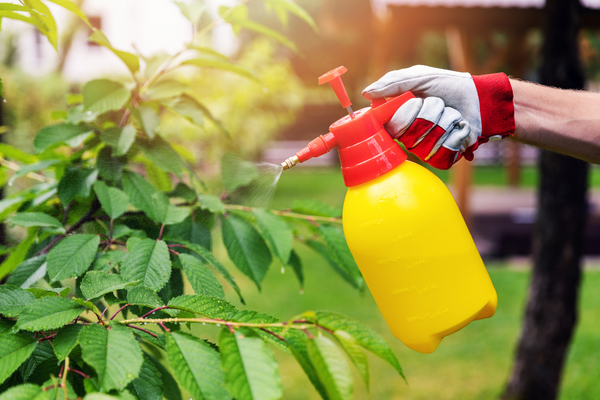3 Common Garden Pests and How to Get Rid of Them Organically
Many species of bugs will view your beautiful garden as an all-you-can-eat buffet. Noticing these garden pests early on can be what saves your garden but spotting them too late could destroy it.
How Do I Spot Garden Pests Early On?
In the beginning, you may not notice the signs that bugs are chowing on your plants until you notice the wilting leaves, brown spots, and holes on the leaves. It’s upsetting for sure, but plants are resilient and can bounce back with a little of your help! Checking your plants weekly will help you spot any signs of pests early on and stop the problem before it becomes a bigger issue.

What are Garden Pests, and Why Are They a Big Deal?
There is a wide variety of pests, they are not prone to only species. They range from bugs, moths, rodents, and/or fungi that feed off the plant’s roots, leaves, blooms, or fruit. Leaving you to have no crops and taking away from the plant’s natural nutrients, causing plants to slowly die.
You may think that pests only eat your plants, but that is sadly not the case. Garden pests can also cause your plants to become sick and can reduce your plant’s growth and the garden’s overall production to produce fruit and stop flowering.
Thankfully, it is possible to get rid of our uninvited guests! We’ll be listing 3 common pests and how to get rid of them below. Just remember if these organic methods don’t work for you, you can always try pesticides. After doing research on it of course!
1. Aphids
Aphids are small, greenish, and soft-bodied insects that will feed off the plant’s nutrients by sucking on the plant. They multiply fairly fast and large clusters of them will weaken the plant drastically, causing harm to flowers and fruits. Luckily, they move pretty slowly, so getting rid of them isn’t such a daunting task!
There are times when all Aphids need is a strong hose-down to get rid of them. Spraying an infested plant with a strong stream of water will detach them from your plants, and they usually aren’t able to find the same plant twice after being blasted off.
2. Spider Mites
Spider Mites are very tiny, tinier than the head of a pin! This makes identifying them difficult to spot. Though they may have “spider” in the name, they are not actually spiders. They’re just really tiny arachnids. They feed on the juices of plants and trees, weakening them and making them susceptible to diseases.
It’s very important for you to identify Spider Mites before an all-infestation because they multiply quickly. To avoid attracting Spider Mites, mist your plants daily. Spider Mites prefer dry, hot climates! Spraying neem oil or rosemary oil on your plant’s underside leaves should kill them. Be very careful and spray the infested plants in the early evening, so pollinators, such as butterflies or bees aren’t as active!
3. Mealybugs
Mealybugs are attracted to overwatered and over-fertilized plants. They damage plants by sucking the sap from stems, leaves, and flowers. This can result in yellowing leaves, stunted growth, or the death of the plants… Yikes!
They’re small, but easy to spot. White, cottony wax is usually the first sign of their presence. Mealybugs move slowly, you can usually see them crawling on the undersides of your plant’sleaves, on stems, or flowers.
Diluting 1 cup of 70% rubbing alcohol with 1 quart of water into a spray bottle is a quick, homemade kill spray that helps get rid of these garden pests in a quick manner. You might have to spray them every now and then to be sure they’re gone for good. If your plants are not too badly infested, use a cotton swab with rubbing alcohol. Then touch every Mealybug one by one, with it. This will kill them instantly!
Time to Get Rid of Those Garden Pests!
Garden pests not only eat your plants but can also cause them to become ill. No one wants bugs in their garden! Having consistent check-ups on your plants will help them stay safe from meddling bugs looking for a tasty treat. That brings us to the end of this post, we hope you found this helpful. Hopefully from reading this you can keep your plants beautiful and healthy! Best of luck to you.